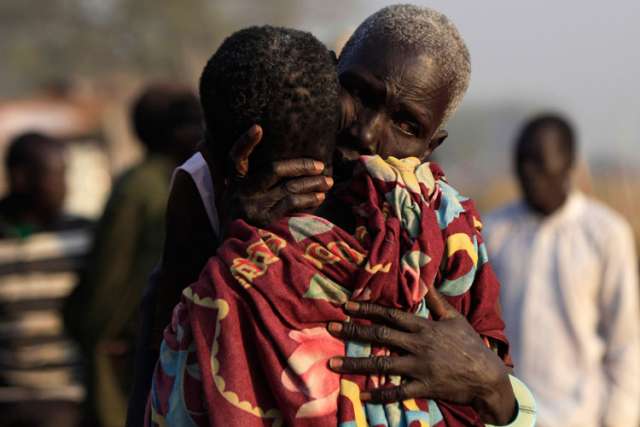What is more profound than a spouse’s experience of betrayal? The betrayed experiences rejection, anger, rage, loss of trust and hope. Infidelity is particularly vivid, but other, seemingly smaller acts can feel like betrayal — telling a private story to a mutual friend, breaking a commitment. Betrayal happens between spouses, friends, families, work colleagues, between organizations or nations. The experience is so commonplace we may not be aware how shocking it is, the depth of the rupture it opens inside us (and between us).
On the outside, it may look big or small. On the inside, it’s huge.
A slap on the face when you expected a kiss. I’ve seen the look in a dear one’s eyes when I’ve done this to her: a thoughtless, unkind word to one who has shared her depths with me, thereby making herself vulnerable. She shows me the way she can be hurt and one day I choose that way. In an instant, something precious is broken, and inner questions spring up: “Isn’t that the end? Of the relationship — of the dream I had for my life, for what life is like?”
It might seem like weakness, covering up or simply impossible to forgive, even if we want to; so we stay nailed to the cross. As Anna explains about boyfriend Walter, in the movie The Money Pit: “He can’t forgive me, and I can’t forgive him for that.”
One day, intrigued after hearing it described in a homily, I picked up Dante’s 14th-century Italian poem, “The Inferno.” On a guided tour of hell, he descends level by level, to deeper, more horrific torments of those who’ve parted company with God. At the lowest circle of hell — not smoldering in fire, but trapped forever in ice — is Lucifer, powerless but for the cold wind blowing up through hell and into Earth by his restless wings. And forever caught with him, each between the teeth of one of his three heads, perpetually chewed and slavered over, in the very mouth of hell, are who? Three famous betrayers: Cassius, Brutus, Judas Iscariot.
Dante selected betrayal as the ultimate sin. It’s astute, not only because betrayal was Dante’s personal hell, but because betrayal is at the heart of evil in human experience.
September commemorates two saints who suffered betrayal: Wenceslaus, the “king” of Christmas carol fame, and John Chrysostom, the “golden-mouthed” bishop of Antioch. Chrysostom was betrayed by Christian leaders; what’s more confusing and soul-troubling? “How can the Church do this to me? Where is Christ in this?” I don’t know if Chrysostom asked such questions. He was strong in faith and love; not flawless, as his apparent contribution to anti-Semitism demonstrates, but seasoned. He’d become strong in not co-operating with abuse, and this strength created enemies who orchestrated his exile and death.
It’s a confounding truth of human life. We are betrayed — and we betray. Almost all human stories turn on a moment of betrayal. We must face the knowledge, not only that we betrayed another, but that we betrayed God. And that God betrayed us. He welcomed us into the world, promised us life, knowing we’d experience pain, suffering, death; that the world would inevitably break us, and nail us to the cross.
There’s a secret, though.
The ancient Liturgy of John Chrysostom unveils it. This eucharistic liturgy has always been associated with Chrysostom, who probably gave it its present form. It tells us Christ gave the gift of Eucharist “on the night He was betrayed, or rather gave Himself up for us.” In the original Greek, it’s a play on the word for betrayal, paradidomi, meaning “was given up” or “handed over.” God doesn’t deny this ultimate betrayal, nor is He defeated by it. He refashions it. In response to being “given up,” He “gives Himself up,” offering Himself for the betrayer. That is the divine gift of forgiveness, given even before He’s betrayed by a kiss, before He speaks from the cross (on which human betrayal put Him) the supreme words of forgiveness. He forgives with His body, soul, life, death, nothing held back. He gives Himself up. Betrayal itself is changed from within.
Judas in the mouth of Lucifer isn’t the end of the story. In “The Inferno,” Dante passes through and beyond Lucifer’s prison into Purgatory and Heaven. Even Dante, who saw betrayal as the worst of all sins, knew it’s in the end a doorway.
For there’s now a route through betrayal. It’s called forgiveness, a gift we receive and a gift we give. It’s not ignorance, fearful acquiescence or putting up with abuse. It’s the opening to life.
Because of the Eucharist and the Cross, betrayal can’t stand alone. Its new companion is unconditional forgiveness.
(Marrocco can be reached at marrocco7@sympatico.ca.)


